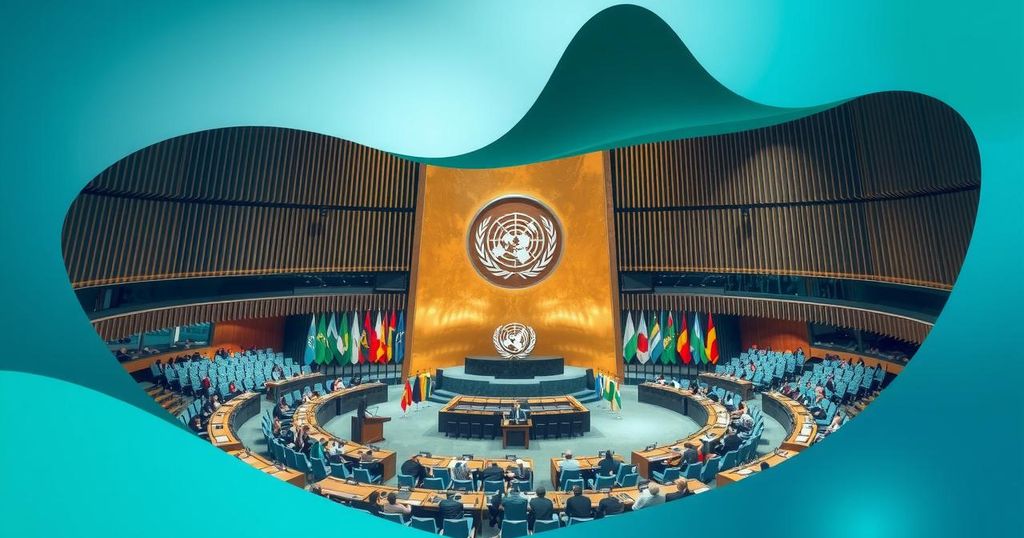- UN General Assembly adopted a resolution on Taliban rule despite US objections.
- Resolution calls for ending the oppression of women and girls in Afghanistan.
- Germany’s U.N. Ambassador emphasized the need for women’s rights restoration.
- The U.S. criticized the resolution for potentially rewarding the Taliban’s actions.
- U.N. encourages a coordinated approach to address Afghanistan’s crises.
UN Resolution Calls for Change in Taliban Governance
The United Nations General Assembly voted on Monday to adopt a resolution concerning Afghanistan’s Taliban regime, a decision that comes despite direct objections from the United States. This resolution calls on the Taliban rulers to end their escalating oppression against women and girls while also demanding the dismantling of all terrorist organizations within the country. It emphasizes the urgent need for economic recovery, humanitarian assistance, and the prosperity of Afghanistan, addressing the severe crisis that has been growing since the Taliban’s return to power in 2021.
Global Response to Human Rights Violations
During the vote, the General Assembly saw a result of 116 in favor, with only the U.S. and Israel opposing it, alongside 12 nations that chose to abstain, including major players like Russia, China, and India. Germany’s U.N. Ambassador, Antje Leendertse, who was behind sponsoring this resolution, pointed out the pressing human rights concerns in Afghanistan. She particularly critiqued the Taliban’s policies that have resulted in a “near-total erasure” of women’s rights and highlighted a central aim of the resolution: to ensure Afghan women and children suffering from violence and poverty are not forgotten by the international community.
Concerns Over Taliban Accountability and Refugees
U.S. officials, particularly Jonathan Shrier, who is the minister-counselor for the Mission to the U.N., were vocal about their discontent with the resolution. He argued that adopting this resolution essentially rewards the Taliban for failing to meet international standards. Shrier emphasized that for decades America has supported the Afghan people with substantial resources and lives lost in the pursuit of stability, and he asserted that now is the time for the Taliban to demonstrate accountability. The resolution also acknowledged countries hosting Afghan refugees, especially highlighting Iran and Pakistan.
In summary, the U.N. General Assembly’s resolution calls for critical changes in Taliban governance, emphasizing women’s rights and counterterrorism measures. Despite significant U.S. opposition, the majority view reflects a global commitment towards improving Afghanistan’s dire situation. The resolution serves as both an appeal to the Taliban and recognition of the nations that support Afghan refugees amid ongoing crises.






